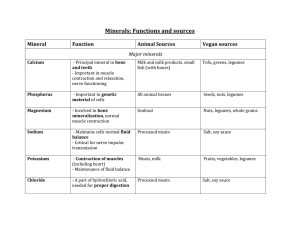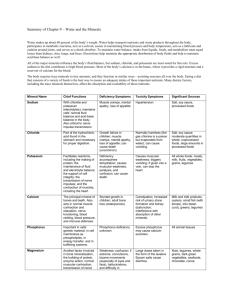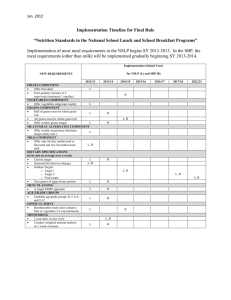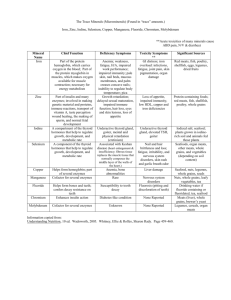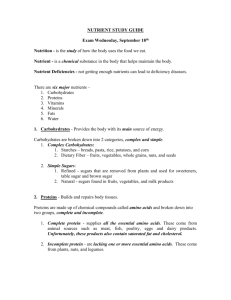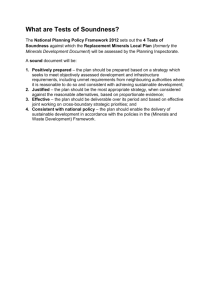Progress Day #3
advertisement
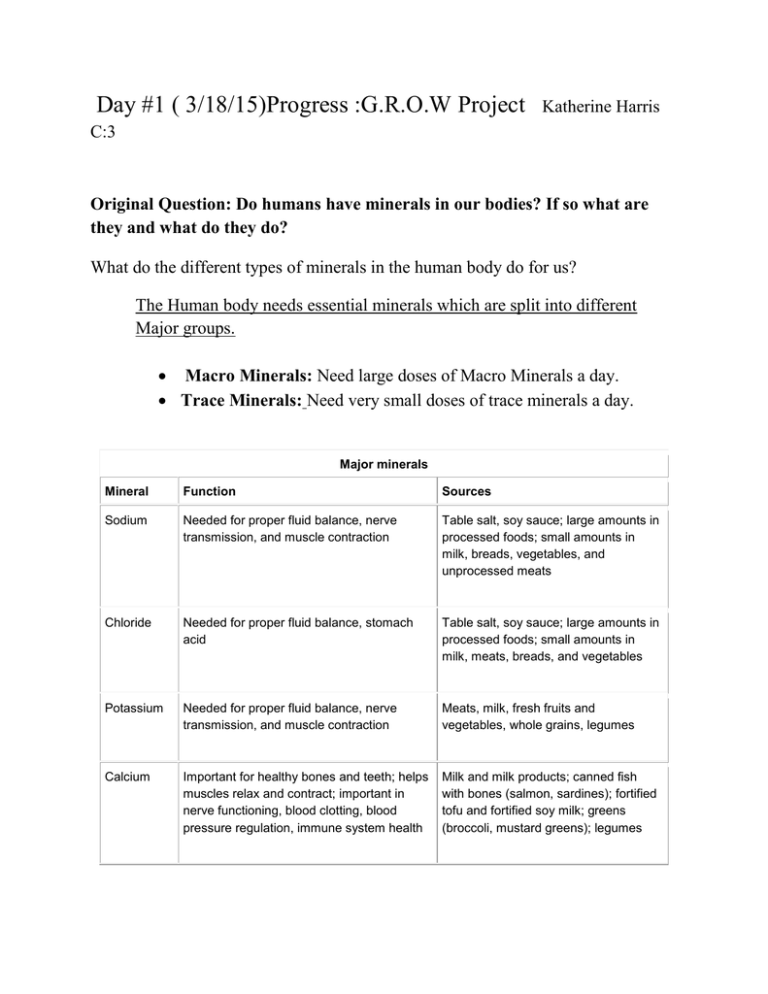
Day #1 ( 3/18/15)Progress :G.R.O.W Project Katherine Harris C:3 Original Question: Do humans have minerals in our bodies? If so what are they and what do they do? What do the different types of minerals in the human body do for us? The Human body needs essential minerals which are split into different Major groups. Macro Minerals: Need large doses of Macro Minerals a day. Trace Minerals: Need very small doses of trace minerals a day. Major minerals Mineral Function Sources Sodium Needed for proper fluid balance, nerve transmission, and muscle contraction Table salt, soy sauce; large amounts in processed foods; small amounts in milk, breads, vegetables, and unprocessed meats Chloride Needed for proper fluid balance, stomach acid Table salt, soy sauce; large amounts in processed foods; small amounts in milk, meats, breads, and vegetables Potassium Needed for proper fluid balance, nerve transmission, and muscle contraction Meats, milk, fresh fruits and vegetables, whole grains, legumes Calcium Important for healthy bones and teeth; helps muscles relax and contract; important in nerve functioning, blood clotting, blood pressure regulation, immune system health Milk and milk products; canned fish with bones (salmon, sardines); fortified tofu and fortified soy milk; greens (broccoli, mustard greens); legumes Phosphorus Important for healthy bones and teeth; found Meat, fish, poultry, eggs, milk, in every cell; part of the system that processed foods (including soda pop) maintains acid-base balance Magnesium Found in bones; needed for making protein, muscle contraction, nerve transmission, immune system health Nuts and seeds; legumes; leafy, green vegetables; seafood; chocolate; artichokes; "hard" drinking water Sulfur Found in protein molecules Occurs in foods as part of protein: meats, poultry, fish, eggs, milk, legumes, nuts Trace minerals Mineral Function Sources Iron Part of a molecule (hemoglobin) found in red blood cells that carries oxygen in the body; needed for energy metabolism Organ meats; red meats; fish; poultry; shellfish (especially clams); egg yolks; legumes; dried fruits; dark, leafy greens; ironenriched breads and cereals; and fortified cereals Zinc Part of many enzymes; needed for making protein and genetic material; has a function in taste perception, wound healing, normal fetal development, production of sperm, normal growth and sexual maturation, immune system health Meats, fish, poultry, leavened whole grains, vegetables Iodine Found in thyroid hormone, which helps regulate growth, development, and metabolism Seafood, foods grown in iodinerich soil, iodized salt, bread, dairy products Selenium Antioxidant Meats, seafood, grains Copper Part of many enzymes; needed for iron metabolism Legumes, nuts and seeds, whole grains, organ meats, drinking water Manganese Part of many enzymes Widespread in foods, especially plant foods Fluoride Involved in formation of bones and teeth; helps prevent tooth decay Drinking water (either fluoridated or naturally containing fluoride), fish, and most teas Chromium Works closely with insulin to regulate blood sugar (glucose) levels Unrefined foods, especially liver, brewer's yeast, whole grains, nuts, cheeses Molybdenum Part of some enzymes Legumes; breads and grains; leafy greens; leafy, green vegetables; milk; liver Progress Day #2 3/20/15 New Questions: How do minerals affect the human brain? Our brain needs Calcium and Magnesium (Magnesium: Stress antidote, anxiety) Progress Day #3 3/24/15 Iron( a trace mineral) is needed for the formation of hemoglobin: Substances that carry oxygen cells throughout the body Iron sources can be found in the food: Meat, Poultry, and Fish Iron can be absorbed by other souces, but are not in as much abundance: whole grains, leafy vegetables, dried beans and peas, and dry fruits. Iron defficiency can lead to anemia( not enough oxygen to the brain) which can cause fatigue, and mental impaired functioning. Iron deficiency for the first two years of life can permanently damage the brain. Sources: http://kidshealth.org/teen/food_fitness/nutrition/vitamins_minerals.html http://www.emedicinehealth.com/minerals_their_functions_and_sourceshealth/article_em.htm https://experiencelife.com/article/comfort-food-for-your-brain/ http://www.minddisorders.com/Kau-Nu/Nutrition-and-mental-health.html
